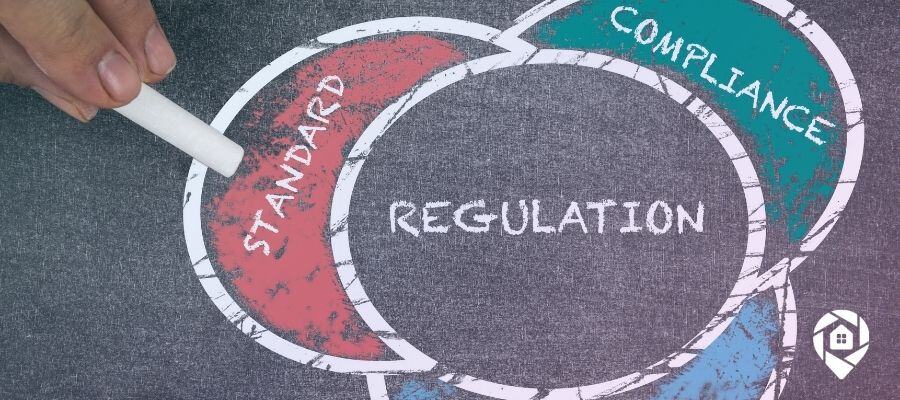
Wholesaling in South Carolina: Your Path to $70K in 2025

Wholesale real estate has become a hot topic, especially with recent legislative changes affecting how it's conducted legally in various states. In this blog post, we dive deep into the current landscape of wholesaling in South Carolina, Oklahoma, and other states, exploring regulatory shifts, strategic insights, and practical steps to thrive in this evolving market.
New Regulations Impacting Wholesalers
Wholesaling without a license has been under scrutiny, and several states have enacted stringent laws to regulate this business model. Cory Boatright delves into these changes, starting with South Carolina, which has adopted a hard stance:
"South Carolina passed a hard and fast law stating that wholesaling without a license is going to be illegal if you don’t own the property as well."
This law emphasizes the requirement of ownership before marketing a property, aiming to curb unlicensed wholesaling. Oregon has taken similar measures, making it potentially a felony to wholesale improperly.
States Adopting New Regulations
- South Carolina: Wholesaling without ownership is prohibited, emphasizing licensing.
- Oregon: Possible felony charges for non-compliant wholesaling.
- Oklahoma: Requires property ownership for public marketing.
- Washington & Nebraska: Considering similar regulations.
Strategic Adjustments for Wholesalers
As the playing field changes, wholesalers must adapt. Corey highlights the need for diversification in strategies:
“We see the writing on the wall that you have to have some more tools in your tool belt than you had before...”
Wholesalers should consider these steps:
- Ownership Before Marketing: Ensure the property is in your name.
- Licensing: If necessary, obtain a real estate license.
- Double Closing: This method involves being on the deed, even if briefly, to comply with ownership requirements.
The Importance of Cash Flow and Leverage
Starting with limited resources, Corey emphasizes the importance of building capital to enhance deal leverage. This allows wholesalers to "take a deal down" for potentially larger profits, compared to traditional assignments:
“As you start to play with some big numbers of cash... you should be stacking some cash up so that you can take a deal down, because... you do have better leverage and have more power to sell for a better price.”
The Impact of New Legislation on Wholesalers
Protection vs. Profiteering
South Carolina’s regulations seem to protect the essence of wholesaling while preventing deceptive practices. For example, advertising a property without ownership but permitting the assignment of a contract under specific conditions:
“Wholesaling does not refer to the assigning or offering to assign a contractual right to purchase residential real estate.”
Navigating the Ethical Landscape
Wholesaling can sometimes be viewed negatively, especially with examples of predatory practices. Corey compares wholesalers to the “pawn shoppers of real estate,” providing a quick, albeit lower, cash option for desperate sellers. This can be beneficial, but it’s crucial to maintain ethics and fairness in deals.
Treat People Right
A critical aspect is treating sellers ethically. Not every wholesaler is predatory, and many strive to provide fair deals:
“There are ones that actually know how to treat people. They have values in their company...”
The Role of Real Estate Agents
Interestingly, many homeowners prefer not to use real estate agents, citing bad experiences and a desire for privacy. This opens opportunities for wholesalers to bridge the gap ethically and efficiently.
“We’ve got recordings of people that say... ‘I don’t want to deal with the real estate agent.’ They had their own reasons...”
Takedown Funding: A Strategic Partnership
Corey's company, Take Down Funding, offers a unique solution for wholesalers needing capital to comply with the new regulations. This partnership helps wholesalers:
- Take Deals Down: Providing the funds to purchase the property outright.
- Avoid Legal Pitfalls: Ensuring compliance with new laws.
- Maximize Profits: Aim for higher returns by selling on the MLS.
Evaluating Property Conditions
Differentiating property conditions is essential for making informed investment decisions:
- Pretty Houses: Need minor cosmetic work (60-70% of market price).
- Yucky Houses: Require medium rehab (50-60% of market price).
- Scary Houses: Major repairs needed, including fire damage (25-50% of market price).
Assessing critical items like the roof, HVAC systems, and foundation helps determine the true condition and potential rehab costs.
Example of Evaluation Criteria
- Roof Condition: Significant impact on costs.
- Central Heating & Air: Major expenses if in bad condition.
- Foundation Issues: Buyers often avoid homes with foundation problems.
- Plumbing & Electrical: Essential systems that could be costly to fix.
- Year Built: Homes built after 2000 generally require fewer repairs.
Partnering for Success
Take Down Funding not only offers financial support but also leverages extensive experience to ensure profitable deals. The partnership aims to bring retail buyers through the MLS, attracting higher offers compared to traditional cash buyers or rehabbers.
“We’re not a cheap date... but guess what? You can get the deal done... and we know where those retail buyers live.”
90-Day Guarantee
If a property doesn’t sell within 90 days, Take Down Funding steps in to liquidate it, ensuring both parties are protected and minimizing losses.
Conclusion
The evolving landscape of real estate wholesaling requires adaptability, strategic partnerships, and ethical practices. By leveraging tools like Take Down Funding and complying with new regulations, wholesalers can continue to thrive and maximize their profits in states with stringent laws.

About Maria Tresvalles
Maria Tresvalles is the dynamic Marketing Specialist at DealMachine, where she has been a key player for the past five years. With a strong background in customer relations, Maria started her journey at DealMachine as a Customer Success Coordinator, where she honed her skills in understanding customer needs and driving satisfaction.



